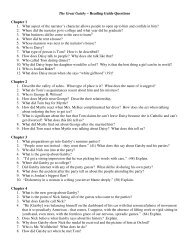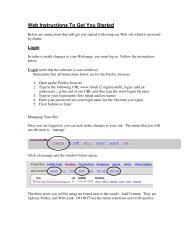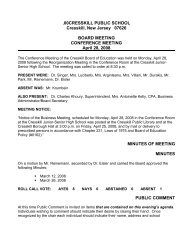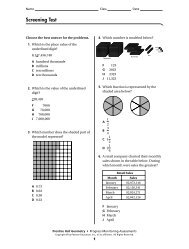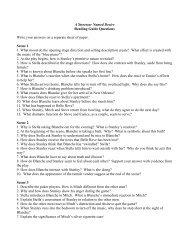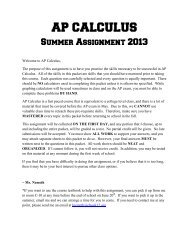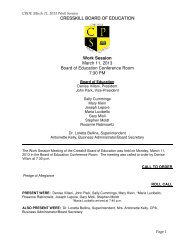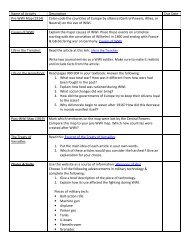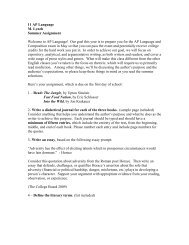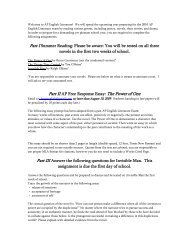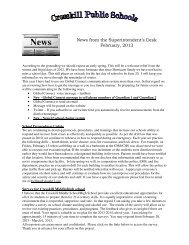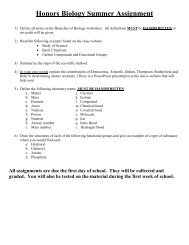Too Dumb for Complex Texts (pdf) - Cresskill Public Schools
Too Dumb for Complex Texts (pdf) - Cresskill Public Schools
Too Dumb for Complex Texts (pdf) - Cresskill Public Schools
- No tags were found...
You also want an ePaper? Increase the reach of your titles
YUMPU automatically turns print PDFs into web optimized ePapers that Google loves.
<strong>Complex</strong> texts aren't so easily judged. Often they <strong>for</strong>ce adolescents to confront the inferiority of their learning, thenarrowness of their experience, and they recoil when they should succumb. Modesty is a precondition of education, butthe Web teaches them something else: the validity of their outlook and the sufficiency of their selves, a confidenceruinous to the growth of a mind.A Habit of Slow ReadingThis is not to say that schools should go Luddite. We should continue to experiment with educational technology, but weshould also preserve a crucial place <strong>for</strong> unwired, unplugged, and unconnected learning. One hour a day of slow readingwith print matter, an occasional research assignment completed without Google—any such practices that slow downand intensify the reading of complex texts will help. The more high school teachers place complex texts on the syllabusand concoct slow, deliberate reading exercises <strong>for</strong> students to complete, the more they will inculcate the habit. The keyis to regularize the instruction and make slow reading exercises a standard part of the curriculum. Such practices may domore to boost college readiness than 300 shiny laptops down the hall—and <strong>for</strong> a fraction of the price.ReferencesACT. (2006). Reading between the lines: What the ACT reveals about college readiness in reading. Iowa City, IA: Author.Retrieved from www.act.org/research/policymakers/<strong>pdf</strong>/reading_summary.<strong>pdf</strong>ACT. (2010). 2010 retention/completion tables. Iowa City, IA: Author. Retrieved fromwww.act.org/research/policymakers/<strong>pdf</strong>/10retain_trends.<strong>pdf</strong>Strong American <strong>Schools</strong>. (2008). Diploma to nowhere. Washington, DC: Author. Retrieved fromwww.deltacostproject.org/resources/<strong>pdf</strong>/DiplomaToNowhere.<strong>pdf</strong>U. S. Department of Education. (2003). Remedial education at degree-granting postsecondary institutions in fall 2000.Washington, DC: Author. Retrieved from http://nces.ed.gov/pubsearch/pubsinfo.asp?pubid=2004010Mark Bauerlein is professor of English at Emory University in Atlanta, Georgia, and author of The <strong>Dumb</strong>est Generation:How the Digital Age Stupefies Young Americans and Jeopardizes Our Future (Or, Don't Trust Anyone Under 30) (Penguin,2008); engmb@emory.edu.Copyright © 2011 by ASCD



